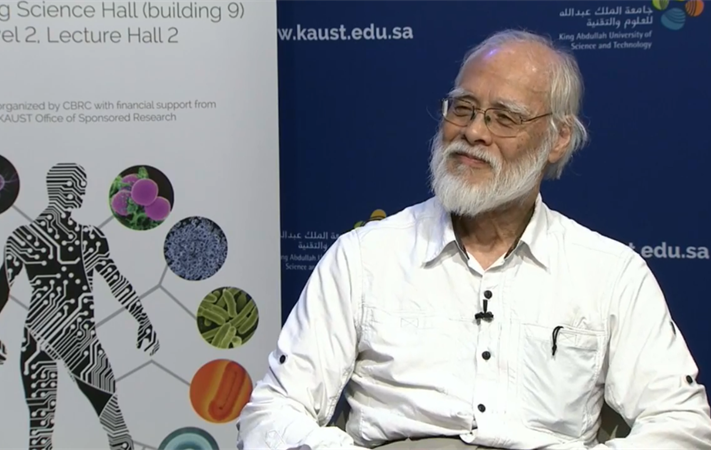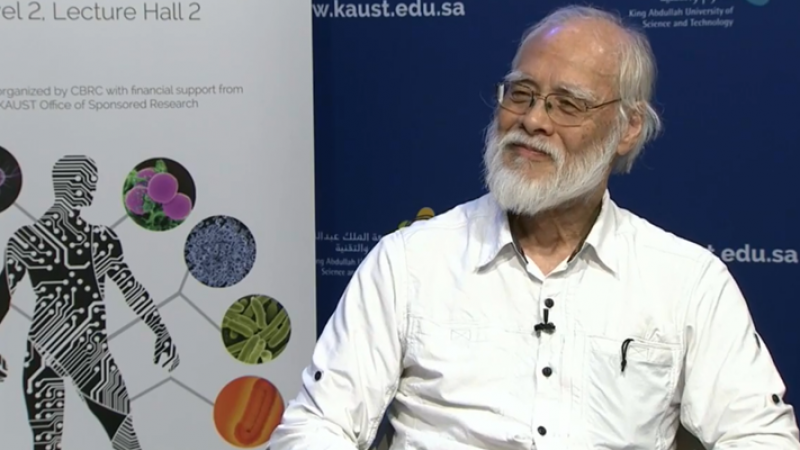- By Andrea Hulsbosch, KAUST News
Shozo Yokoyama, the Asa G. Candler professor of biology at Emory University's Department of Biology, spoke with us on Facebook Live about the importance of the past in understanding the present and in making predictions about the future of species. Yokoyama was on KAUST campus as part of the research conference on Big Data Analyses in Evolutionary Biology, hosted by the Computational Bioscience Research Center (CBRC).
Yokoyama specializes in the evolution of color vision. His lab was the first to identify the amino acids that regulate red-green color vision and UV vision in various vertebrate species. During this interview, he discusses his current research using quantum chemistry and explains how molecular genetics plays a role in the evolution of vision.

Shozo Yokoyama, a professor of biology at Emory University, talks about the importance of the past in understanding the present and in making predictions about the future of species. File photo.
Yokoyama earned his bachelor's and master's degrees in biology in Japan and his Ph.D. in biomathematics in 1977 from the University of Washington. Afterwards, he worked at Washington University, St. Louis (1978 to 1987), the University of Illinois (1987 to 1991) and Syracuse University (1991 to 2003). Yokoyama has authored over 150 articles, and he has been a panel member of the Genetics Study Section at National Institutes of Health (1988 to 1991) and president of the American Genetics Association (2003).
In his interview, Yokoyama strongly emphasizes the importance of the new upcoming generation of scientists. He believes students should try to understand evolution without old-fashioned textbooks and develop their own fresh views instead. Often Yokoyama's generation can learn more from young minds than the other way around, especially when the young aren't trained well.
"The fundamental way of doing evolutionary biology is by asking animals how they evolved; if you are smart enough, the animals will offer you the answer," he explained. "This organic way of learning is the best way to discover important mechanisms—and then a Nobel Prize might be lurking around the corner."
